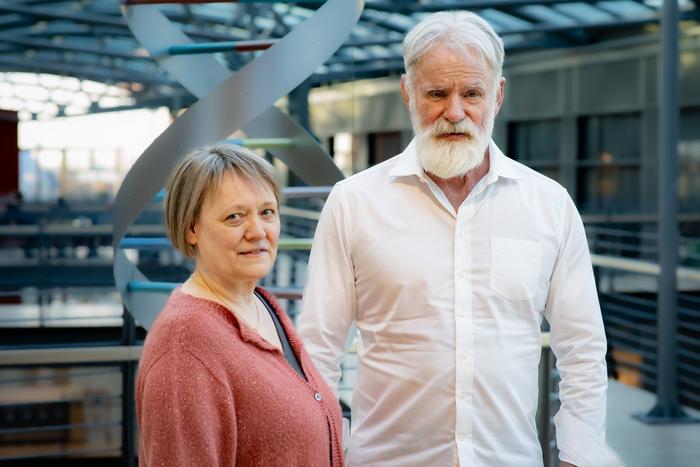A sequence variant that increases risk of pregnancy loss
Scientists at deCODE genetics, a subsidiary of Amgen and their collaborators from Iceland, Denmark and USA published a study today in Nature Structural and Molecular Biology titled “Variant in the synaptonemal complex protein SYCE2 associates with pregnancy loss through effects on recombination”.

Credit: deCODE genetics
A sequence variant that increases risk of pregnancy loss
Scientists at deCODE genetics, a subsidiary of Amgen and their collaborators from Iceland, Denmark and USA published a study today in Nature Structural and Molecular Biology titled “Variant in the synaptonemal complex protein SYCE2 associates with pregnancy loss through effects on recombination”.
While it is well established that chromosomal abnormalities are a major cause of miscarriages the biology behind pregnancy losses with or without chromosomal errors is not well understood. Over 114 thousand women from Iceland, Denmark, UK, USA and Finland who have experienced pregnancy loss participated in a genome-wide association study, testing 50 million sequence variants. A low frequency missense variant in the SYCE2 gene was found to increase the risk of pregnancy loss by 22%.
In a previous report by deCODE scientists this missense variant was shown to associate with recombination phenotypes in chromosomes that were transmitted from the mother. Recombination between homologous chromosomes is an essential part of meiosis, the generation of the human egg and sperm cell. The product of SYCE2 forms a part of a protein complex that is essential for the alignment of homologous chromosomes for recombination and the missense variant associating with pregnancy loss and recombination is predicted to affect the stability of this protein complex.
A closer inspection of the effect of the variant on recombination revealed an effect on positioning of crossovers that is proportional to the length of the chromosomes, the longer the chromosome the larger the effect. The effect on recombination is measured in live born individuals. The authors propose that this effect may be more extreme in pregnancies that are lost and may contribute to the pregnancy loss. The association with pregnancy loss does not account for embryos lost in early gestation before pregnancy has been detected so the effect of the variant on pregnancy success may be underestimated.
The findings reported in this study demonstrate that a variant with a substantial effect on recombinations can be maintained in the population despite increasing the risk of pregnancy loss.
—————————-
Based in Reykjavik, Iceland, deCODE is a global leader in analyzing and understanding the human genome. Using its unique expertise and population resources, deCODE has discovered genetic risk factors for dozens of common diseases. deCODE is a wholly-owned subsidiary of Amgen (NASDAQ:AMGN).
Journal
Nature Structural & Molecular Biology
DOI
10.1038/s41594-023-01209-y
Method of Research
Meta-analysis
Subject of Research
People
Article Title
Variant in the synaptonemal complex protein SYCE2 associates with pregnancy loss through effect on recombination’
Article Publication Date
29-Jan-2024




